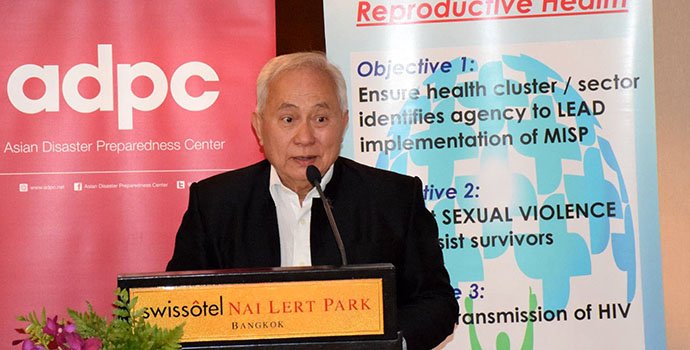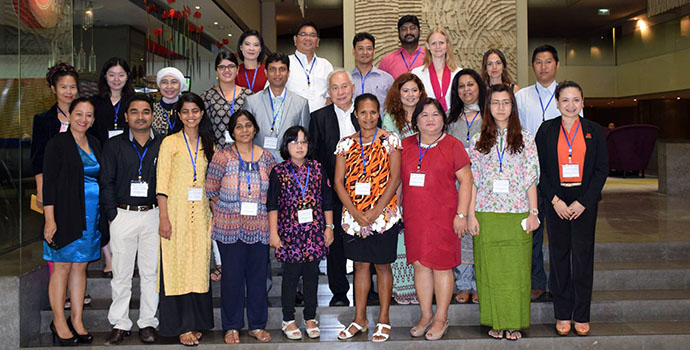- About Us
-
Who we are
-
- Publications
-
- ADPC Academy
-
MediaADPC'S NEWS
ADPC and IPPF build a regional pool of experts to manage reproductive health in emergencies ADPC and IPPF build a regional pool of experts to manage reproductive health in emergencies
25 - 29 Apr 2016
Bangkok, Thailand

ADPC in cooperation with the International Planned Parenthood Federation (IPPF) conducts the second regional training course on Minimum Initial Service Package (MISP) for Sexual and Reproductive Health in Crises on 25–29 April 2016 in Bangkok.
Following last year’s training, the goal is to increase coordinated efforts among humanitarian and developmental agencies and implementation of MISP during crises. Participants come from across the region, including Bangladesh, India, Indonesia, Myanmar, Nepal, Papua New Guinea and the Philippines.
“The current limited access to obstetric care during emergencies increases the risk of maternal deaths in Asia-Pacific. The timely provision of sexual and reproductive health services to women and adolescents during disasters can significantly help prevent disease, disability and death,” remarked Dr. Jingjai Hanchanlash, ADPC’s Executive Director (a.i.).
“In rural and tribal areas in India women are unaware of reproductive and sexual health issues, and they are still using tree leaves and soil for their menstruation. They don’t speak out about their needs and this gap needs to be addressed,” stated one of the training participants.
ADPC and IPPF-Sexual and reproductive health PRogramme IN crisis and post-crisis siTuations (SPRINT) work to increase coordination and professional capacity in sexual and reproductive health across the Asia-Pacific region by building capacity in the implementation of the Minimum Initial Service Package for reproductive health in humanitarian crises.
“The training will help the participants to set goals and develop action plans within their organizations for addressing sexual and reproductive health before, during and after crises,” said Dr. Rajrattan Lokhande, Manager at IPPF-SPRINT.
“My expectation from this training is to enhance my strategic approach to disasters and increase my knowledge and skills in MISP to improve guidelines for a more effective emergency response,” said another training participant.
The training utilizes IPPF-SPRINT’s manuals that are based on the curriculum of the Inter-Agency Working Group that strengthens access to quality sexual and reproductive health services for people affected by conflict and natural disaster.

About IPPF-SPRINT:
The SPRINT Initiative is a Sexual and reproductive health (SRH) PRogramme IN crisis and post-crisis siTuations. SPRINT ensures access to essential lifesaving SRH services for women, men and children in times of crises, a time when services are most needed yet are not prioritised or recognised by key humanitarian responders.
The SPRINT Initiative saves lives and delivers on behalf of the Australian Government aid program (DFAT: Department of Foreign Affairs and Trade), which aims to provide more effective preparedness for and response to disasters and crises.
The Initiative is managed by the International Planned Parenthood Federation (IPPF) and represents its commitment to increasing access to SRH services for crisis-affected populations. The International Planned Parenthood Federation is a global service provider and a leading advocate of sexual and reproductive health and rights for all. It is a worldwide movement of national organisations working with and for communities and individuals.
Facebook: IPPF Global-SPRINT
Twitter: @2014SprintLatest NewsRelated Trainings
-